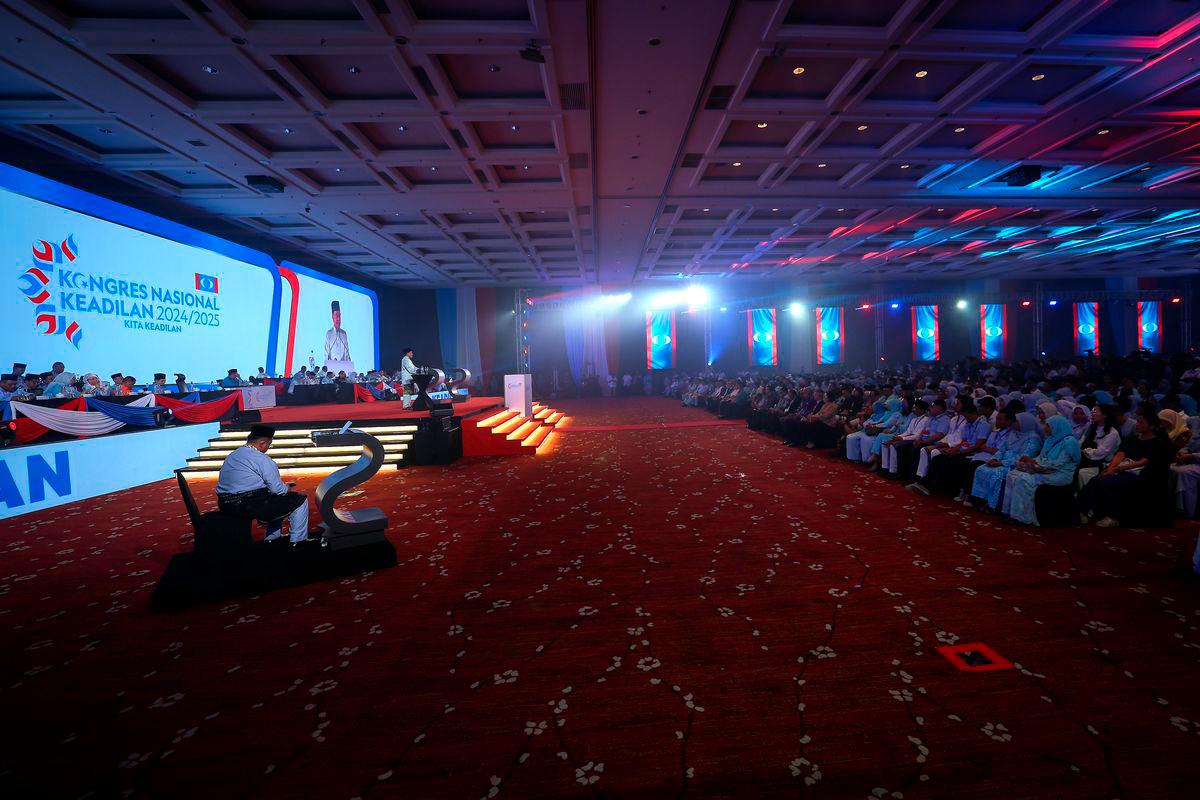KUALA LUMPUR: If there is one clear takeaway from the results of the PKR elections, the delegates voted for Team PKR.
There was no clean sweep by the leading teams.
For certain, they did not vote entirely for candidates supposedly aligned with a particular leader.
Track record and merit came first, not loyalty to a particular leader.
The rules stipulate clearly that no list of candidates from any group should be allowed, but the alignment was well known.
Referred to as “cai” or apparently the “cai dan,“ as in the menu of Chinese restaurants, the list comprises preferred candidates.
Defeated deputy president Datuk Rafizi Ramli snubbed the rule and openly took to Facebook to release his list of endorsed candidates aligned with his campaign.
They included Negeri Sembilan Menteri Besar Datuk Seri Aminuddin Harun, Chang Lih Kang (Science, Technology and Innovation Minister), Nik Nazmi Ahmad (Natural Resources and Environmental Sustainability Minister), as well as Manivanan Gowin.
Those who backed Nurul Izzah Anwar, who defeated Rafizi for the deputy president post, included Selangor Menteri Besar Datuk Seri Amirudin Shari and Deputy Minister of Entrepreneur and Cooperatives Development Datuk R. Ramanan, who is also Sungai Buloh MP.
But credit must go to the delegates from over 200 divisions who rose above party politics.
The campaign has been intense and, as expected with any form of contest, it was emotional at times.
Democracy has always been noisy, and that is the core value of the system. It is also about contests and choices.
With Nurul clearly a favourite once she announced her candidacy, the attention turned to the fight for the four vice presidential posts.
The delegates rightly chose performance and unity as they cast their ballots.
The beneficiaries were Amirudin, Aminuddin, Chang and Ramanan, who joined the party’s third-highest leadership post at the first time of asking.
Their mature picks also demonstrated the multi-racial line-up of the four positions.
The victors for the central leadership council were also indicative of what the delegates wanted.
Datuk Fahmi Fadzil, the high-profile Communications Minister, finished top for the 20-member central council, which saw a crowded field of over 80 candidates.
It was a clear testament to the Lembah Pantai MP’s widespread popularity within PKR’s rank and file.
Akmal Nasrullah Mohd Nasir, the Deputy Energy Transition and Water Transformation Minister made it into the council.
The pro-Rafizi politician, who was earlier defeated as the Johor Bahru division chief, had made allegations of discrepancies in the party’s electoral system.
Others perceived to be supportive of Rafizi included Lee Chean Chung, the MP for Petaling Jaya, and Ledang MP Syed Ibrahim Syed Noh. They were voted in, too.
Now that the party election is over, the immediate task of the party leadership is to quickly heal wounds and rally the troops.
There is little point in winning the war but losing the looming battle — the next general election, which is just over two years away.
The next 18–20 months will be absolutely crucial for PKR to strengthen its fort and arsenal.
-- MORE
COMMENTARY-PKR POLLS 6 KUALA LUMPUR
Those defeated in the party polls have to accept graciously that, as in any election, there must be winners and losers.
Allegations of a flawed or manipulated electoral system flew out the window following the outcome of the results.
Nurul Izzah won her post with a huge margin but now faces a bigger task ahead.
She obtained 9,803 votes against Rafizi’s 3,866.
She rightly concluded her campaign by saying, “Saudara Rafizi is my friend, not only before but now and forever.”
The Pakatan Harapan (PH) coalition is led by PKR, and their real opponents are outside.
The reality is that PKR does not command the largest number of MPs in PH and must also contend with opponents who are now partners in the same MADANI Government.
It is an odd and complicated equation, but one that has worked well so far, although it has unfortunately slowed down PKR’s reformist pledges.
Lest we forget, in the country’s 68 years of independence, for the first time, the federal government is led by a truly multi-racial party.
The path to reforms cannot be achieved in two years, even as patience runs thin at times, but it is better than the race and religion narrative.









